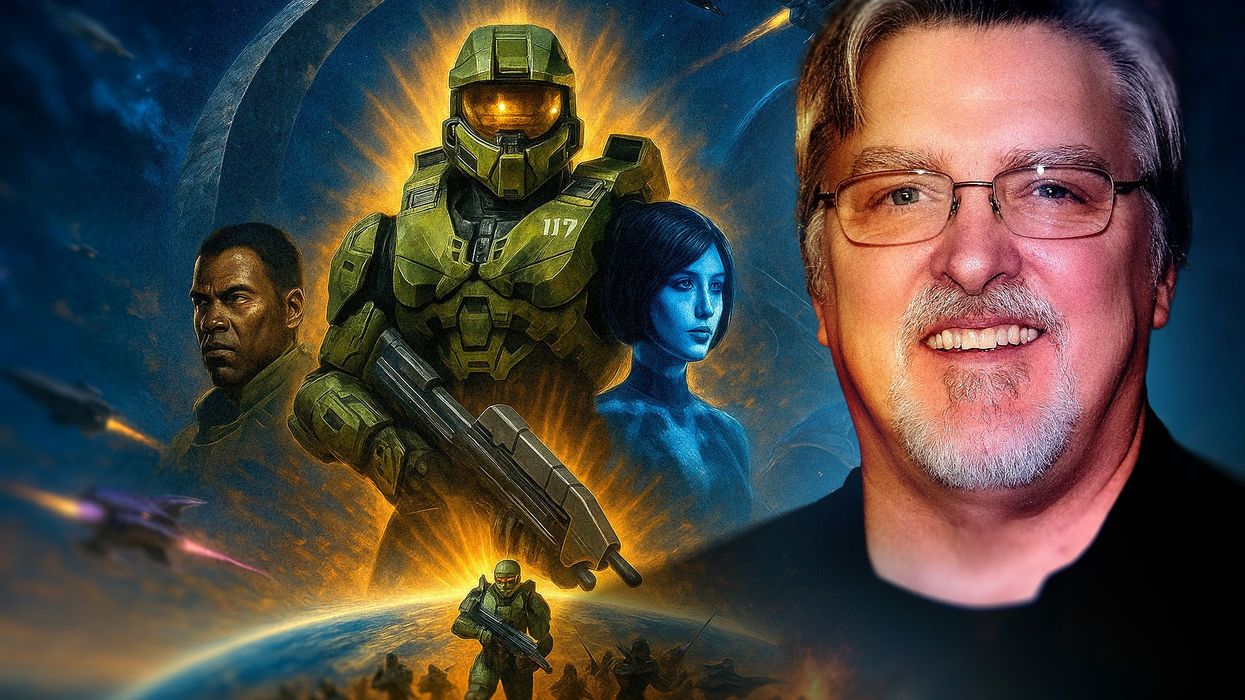
Gabe Ginsberg | Getty Images

Martin O’Donnell reveals how leftist dogma and corporate greed betrayed gamers.
Even if you’ve never been a video gamer, there’s a good chance you’d recognize the epic blend of orchestral music, soaring choral vocals, and futuristic electronic sounds that make up Halo’s iconic theme song.
What might surprise you, however, is that the song’s composer, Martin O'Donnell, is a lifelong conservative who has recently entered the political sphere by running as a Republican candidate in Nevada, with plans for another run in 2026.
Although O’Donnell never imagined his musicality would lead him into the video-game industry, that’s where he found himself for over 20 years, starting in the late 1990s. But like virtually all facets of the entertainment industry, over time the world of video games began leaning left, and Martin found himself at odds with the industry’s political ideology.
“I'd get a reputation as being the sort of raving conservative, but I tried to keep my relationships lighter if possible,” he told Auron MacIntyre on a recent episode of “The Auron MacIntyre Show.”
While he was fortunate enough to avoid the “woke wave” that hit the gaming industry in the mid-2010s, he recalls “hints of it coming down.”
“I could see the corporations and the publishers just beginning to try and control the message of the games,” he says.
He recalls working on a video game called Six Days in Fallujah in the late 2010s — a project by Highwire Games, a small, non-mainstream studio. The game was inspired by the Second Battle of Fallujah, a major conflict during the Iraq War. Even though it was meant to depict real events from the battle, drawing on accounts from U.S. Marines, soldiers, and Iraqi civilians, and emphasized the human cost of the war, the woke left clutched its pearls, claiming the game trivialized war.
“We got this sort of public flogging because we were doing a game about Iraq, and you're not supposed to do that. And that's another moment where I thought, ‘Oh, wow, this industry has really changed,’” says O’Donnell.
The COVID-19 pandemic, however, is when the industry went “high-octane woke,” he says, but now it’s “paying the price for it” because “people are not buying those games.”
“I wanted to ask you as someone who was familiar more with inside the industry: Were these choices being made because people truly thought that [progressivism] was the future of profits, or was this an ideology that had been carried into the industry and these people were just going to do this because they were true believers no matter what?” Auron asks, pointing to Bud Light’s catastrophic campaign with trans influencer Dylan Mulvaney as a prime example of abandoning common sense for a political agenda.
“I honestly believe it is the logical result of what happened to higher education going back 80 years, maybe even a full century,” says O’Donnell. “When progressivism started to infect, there were people who were smart enough to know that if you can get [progressive ideology] into the university systems … eventually all those [students] are going to start going out into society, getting entry-level jobs, rising up, and then they're influencing [culture and policy].”
And the gaming industry was no exception to this “cancer,” he says.
Even though gamers were boycotting games they had loved for years, “the incentive system [had stopped] being as important as ideological purity,” and so companies continued to infuse leftist politics into their video games.
But hardcore gamers weren’t having it. “Gamergate” — an online movement ignited by frustration with the industry’s woke agendas, especially the push for diversity, feminism, and social justice themes — first sparked in 2014 and roared back in 2024. Boycotts ensued, with some gamers rejecting major franchises for lesser-known titles or stepping away from gaming altogether.
But the industry’s decline isn’t just due to woke agendas — it’s also bleeding creativity. Big publishers, obsessed with profits, churn out endless sequels like Assassin’s Creed and Call of Duty, sidelining bold, innovative projects that might breathe life back into the gaming world.
O’Donnell saw this coming, lamenting that companies are “only [publishing] the successful titles,” crushing innovation and stifling bright, creative minds that could bring new ideas to the table. This focus on safe bets, coupled with mass layoffs, has left gamers craving the originality that once defined the industry.
Combine wokeness and lack of originality with the shift to “games as a service,” where players own nothing due to subscriptions and server-dependent games that companies can shut off at any time, and gamers feel even more betrayed by an industry that’s stopped caring about the titles they once loved.
To hear O’Donnell’s full analysis on why the gaming industry is collapsing, watch the full interview above.
To enjoy more of this YouTuber and recovering journalist's commentary on culture and politics, subscribe to BlazeTV — the largest multi-platform network of voices who love America, defend the Constitution, and live the American dream.
BlazeTV Staff